Part 1: Evidence and Reflection on Your Learning (Structured by Activity)
Blog 1:
During the course, I did a blog 1 writing on Brightspace. The topic of this blog is about “Privacy and Human-Centred Learning”. Before I wrote the blog 1, I read three materials and completed my blog inspired by some views“ In “teaching in blended learning environments”, the author mentioned the view that “blended learning is the inspiration of much of the innovation, both pedagogically and technically, in higher education.”. Through further understanding of this view, I illustrated in my blog that blended learning solved a series of problems that may arise from other teaching methods during the pandemic.In addition, we also checked the article “reading ethical challenges of edtech, big data and personalized learning: twenty first century student sorting and tracking”. The article mentioned “ethical policy concerns about use of big data in education”. According to this part, I began to think about the negative impact of educational technology on our privacy and security, and combined with my own experience, I further analyzed that collecting student information can answer the violation of student privacy. Finally, we mentioned the viewpoint mentioned in Jim Luke’s article “that’s not a robbery Checker”. He mentioned that websites such as Turnitin are teaching Death Star. I have used up this view in my blog, but I think “we can’t unilaterally criticize or praise this educational technology”.
From doing this, I learned that even the existence of websites with official authorization that can reasonably collect information exposes the possibility of user privacy. However, in distributed learning, open learning and online learning, it is difficult to never collect students’ information. The only best solution is to highly protect students’ privacy and improve the system in order to avoid information leakage. This learning contributed to my development of“Critically reflect on and articulate concepts around modality,pedagogy,and access,including distributed and open learning theory,online and open learning history,privacy laws,online learning communities,open research, And open data. “This learning matters to me because I think online learning is something I have to do every day during the very popular period. Understanding this information will help us protect our privacy information.
My blog link: Yuqing’s topic1 post
Comment I received:
Hi Yuqing,
I’m glad you mentioned the guard me privacy incident; It’s such as coincidence that something relevant to privacy happened so recently. when I was reading that email, the uncertainty of whether or not my information is leaked and what are the third party is going to do with it horrifies me. I was upset to see that their database is hardly protected and exposed to the public network. You brought up a very interesting point and I enjoyed the read a lot! Great work!
Regards,
Alex
Comments I made on others’ posts:
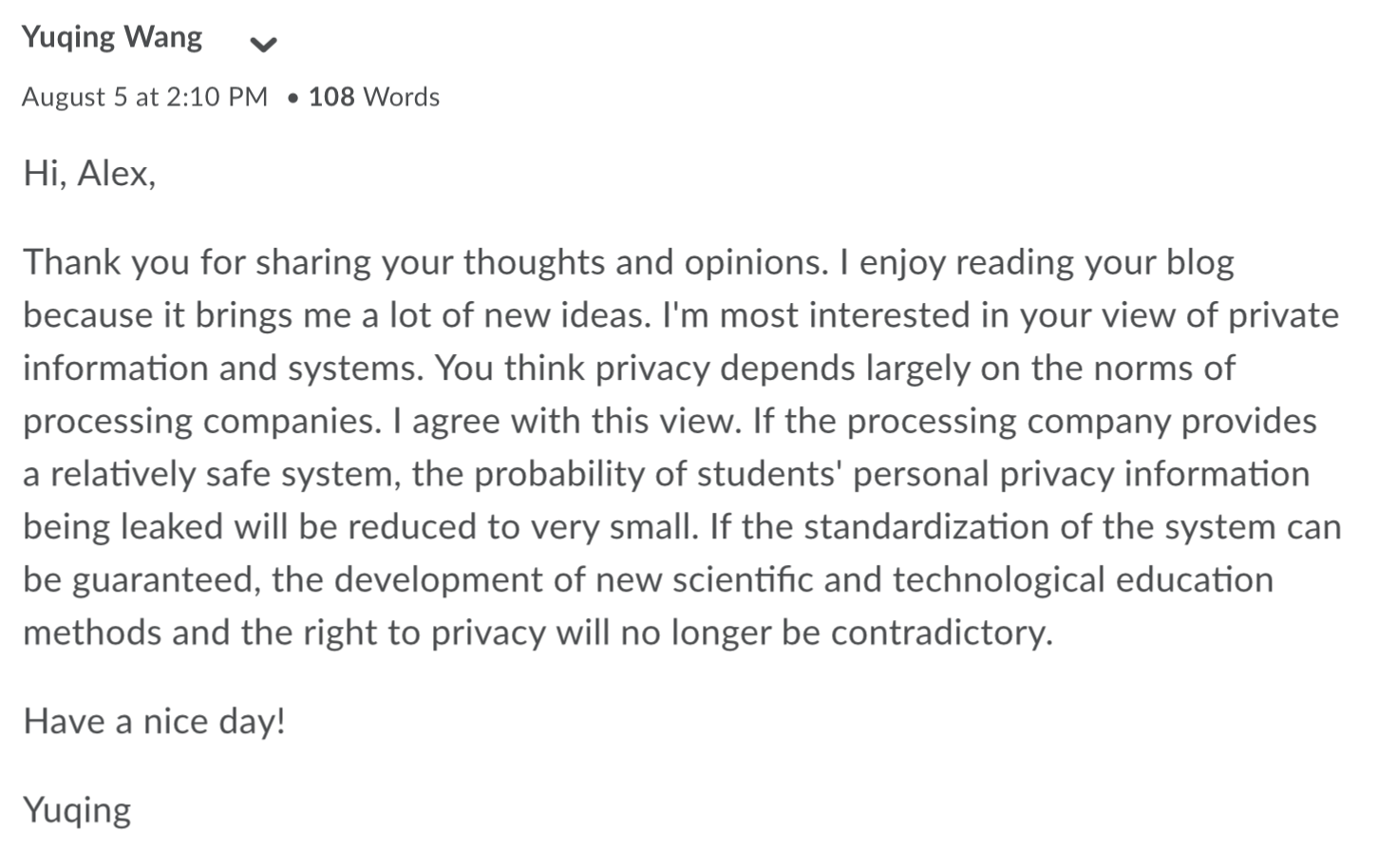
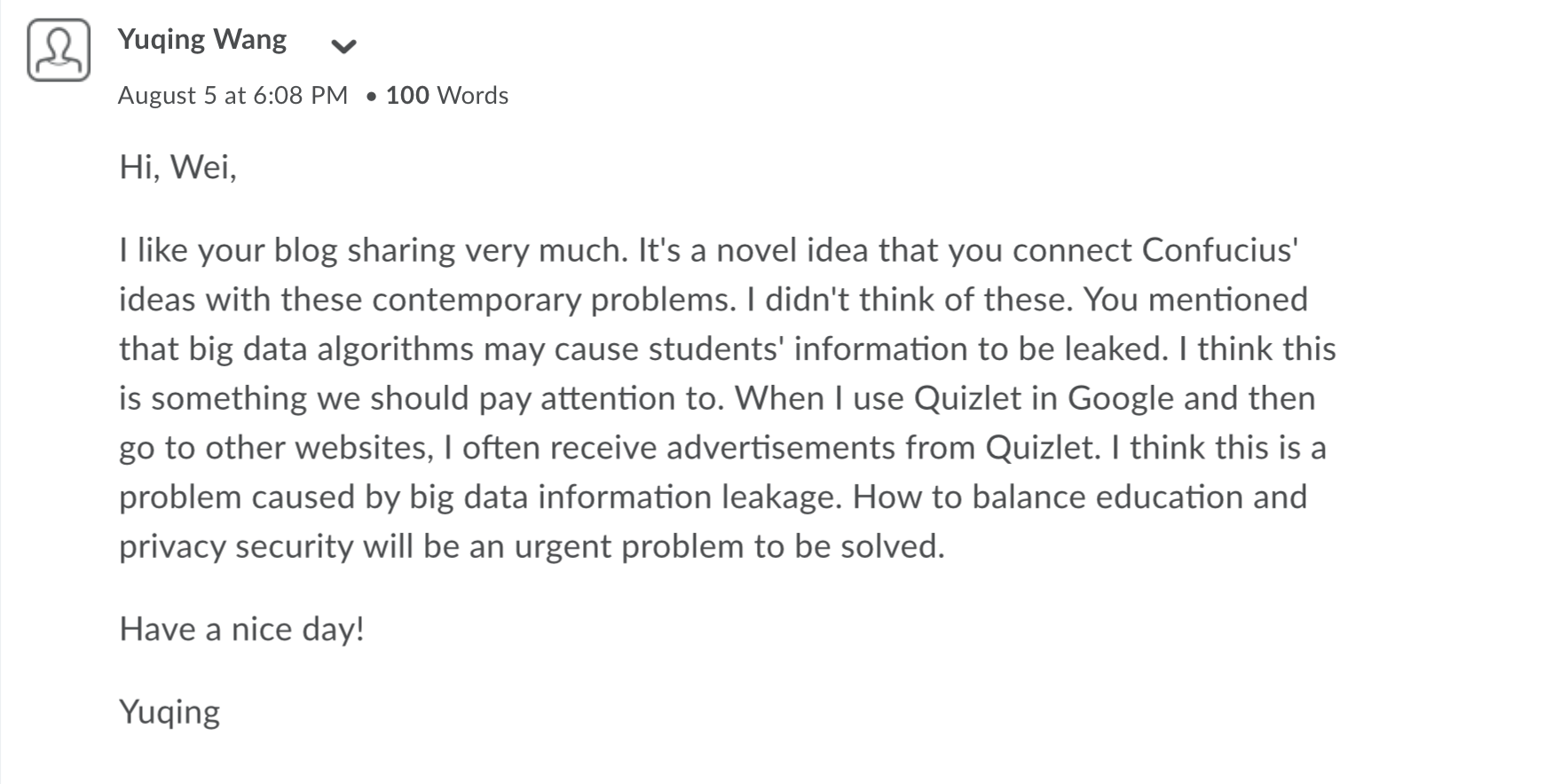
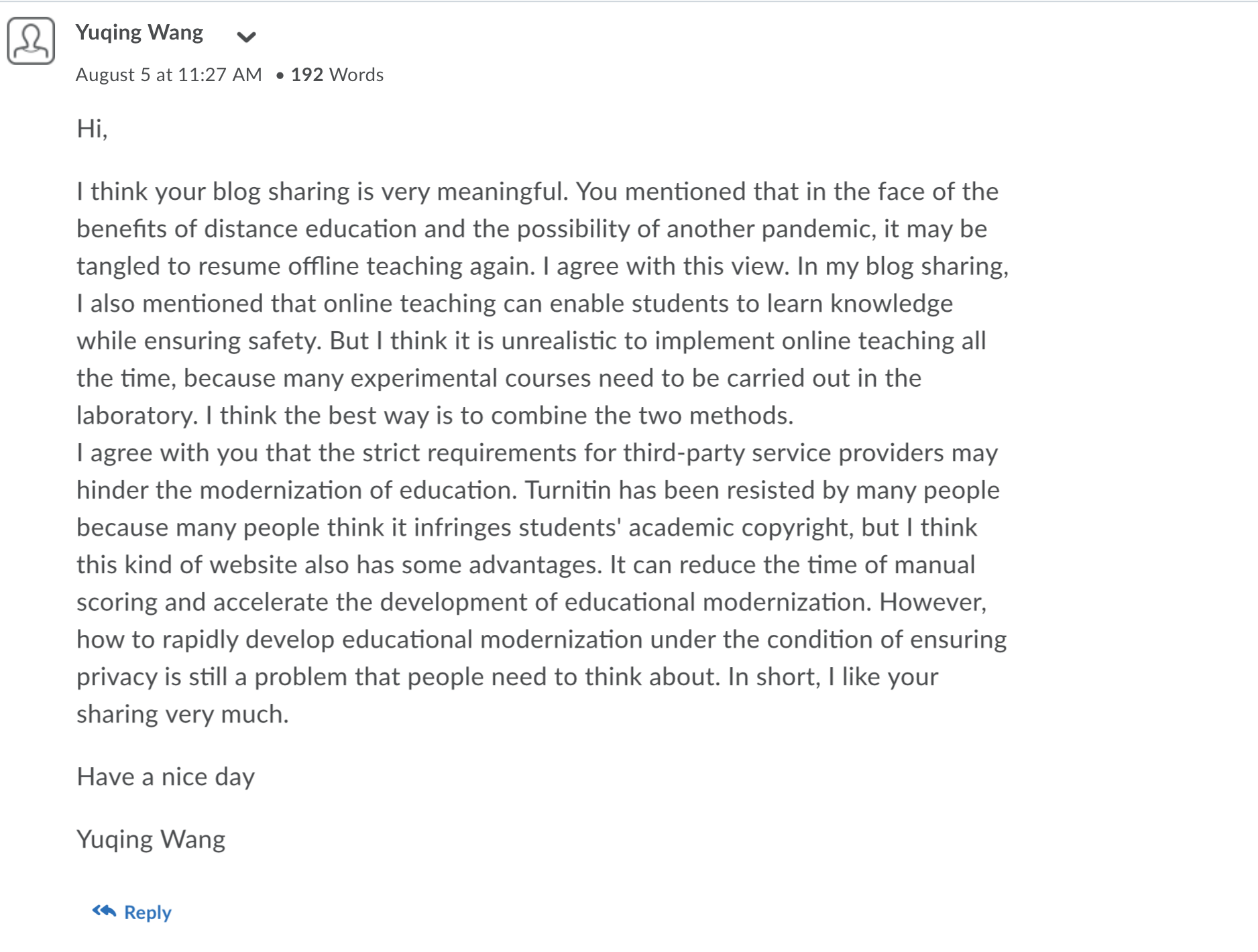
Blog 2:
The topic of this blog is “history and context of distributed and open learning”. Before I wrote this blog, I read too articles. From the first one “Teaching Online – A Guide to Theory, Research, and Practice”, I understand that MOOCS course means massively open online courses. In my blog, I analyzed the advantages and disadvantages of this course compared with the traditional course. In addition, I read “twenty five years of ED technology”, in which Martin Weller mentioned “at the turn of the center, e-learning was poised to become part of the main stream of higher education.”. This means that e-learning has left the laboratory and entered the public’s attention. In my blog, I analyzed the relationship between the development of e-learning and economic investment. From doing this I learned the importance of economic factors in the development of e-learning (including open learning and distributed learning). In addition, we have further deepened our understanding of MOOCS course. This learning contributed to my development of explore and engage with current literature on the distributed and open education movement. This learning matters to me because I am a student majoring in economics. This knowledge combines my major with the learning methods that I am interested in.
My blog link: Updated version of the post (Topic 2)
Comment I received:

Comment I made on other’s post:
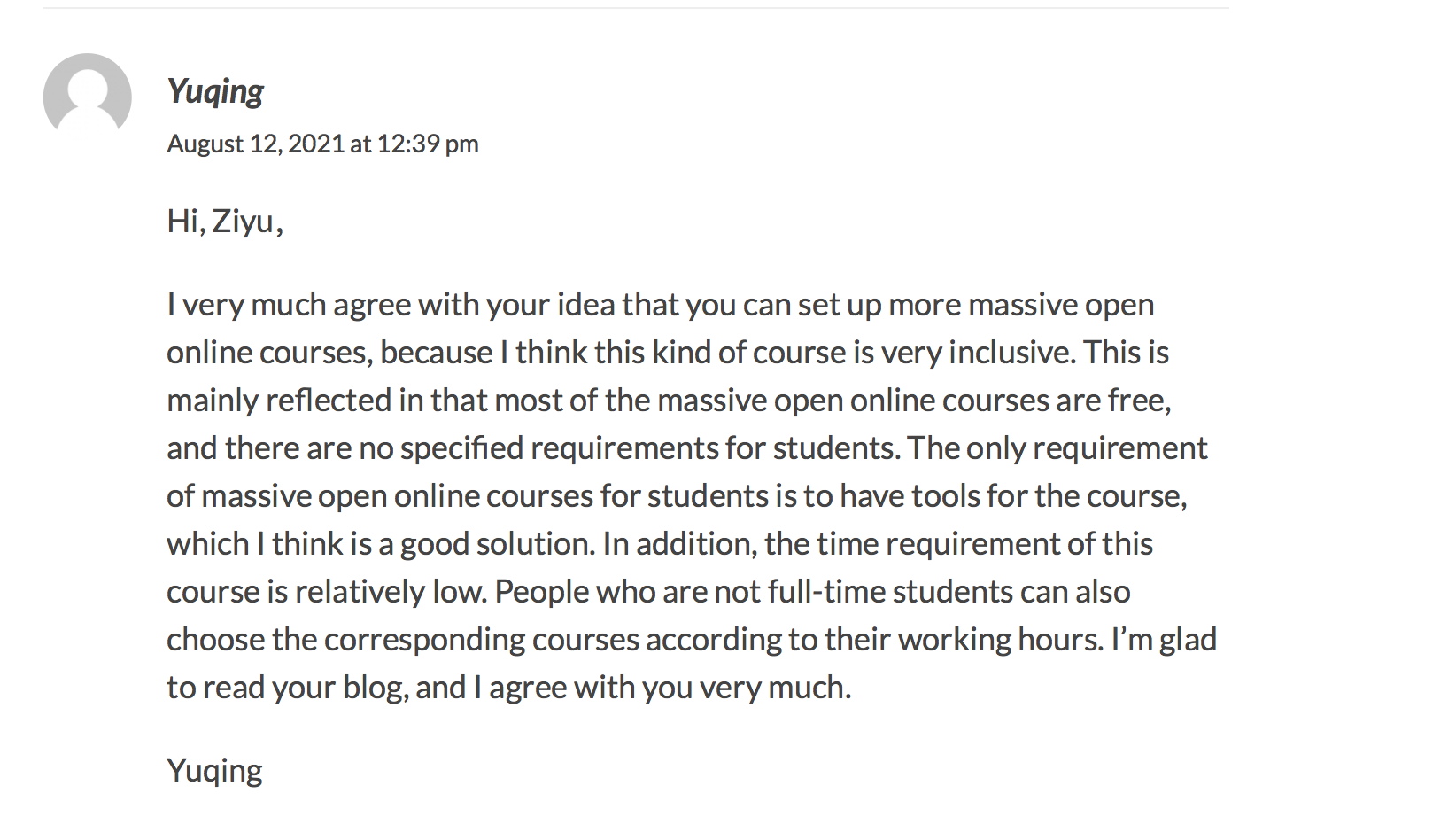
Blog 3:
The topic of this blog is equity and access. Before I wrote blog 3, I read an ‘a guide to making open textbooks with students’, Mays points out The United Nations Universal Declaration of Human Rights asserts that “higher education shall be equally accessible to all.” I had never thought about the relationship between equality and education before. After reading the article, I analyzed the possible resistance of high spending to higher education according to economic pressure. I read “design principle VIII: a space to engage with the world” mentioned in “design principles for indigenous learning spaces”. According to the inspiration, I wrote a good place for the dissemination of indigenous culture by distance education methods such as open learning environment. From completing these activities, I learned open educational resources (such as free online textbooks) not only reduce the economic burden of students, but also maintain the fairness of higher education to every student. The things I learned matter to me because I will also give up some interested elective courses because of some high textbook costs. This is closely related to my student life, and I hope these problems can be well solved.
My Blog link:Yuqing’s Topic 3 blog
Comment I received:
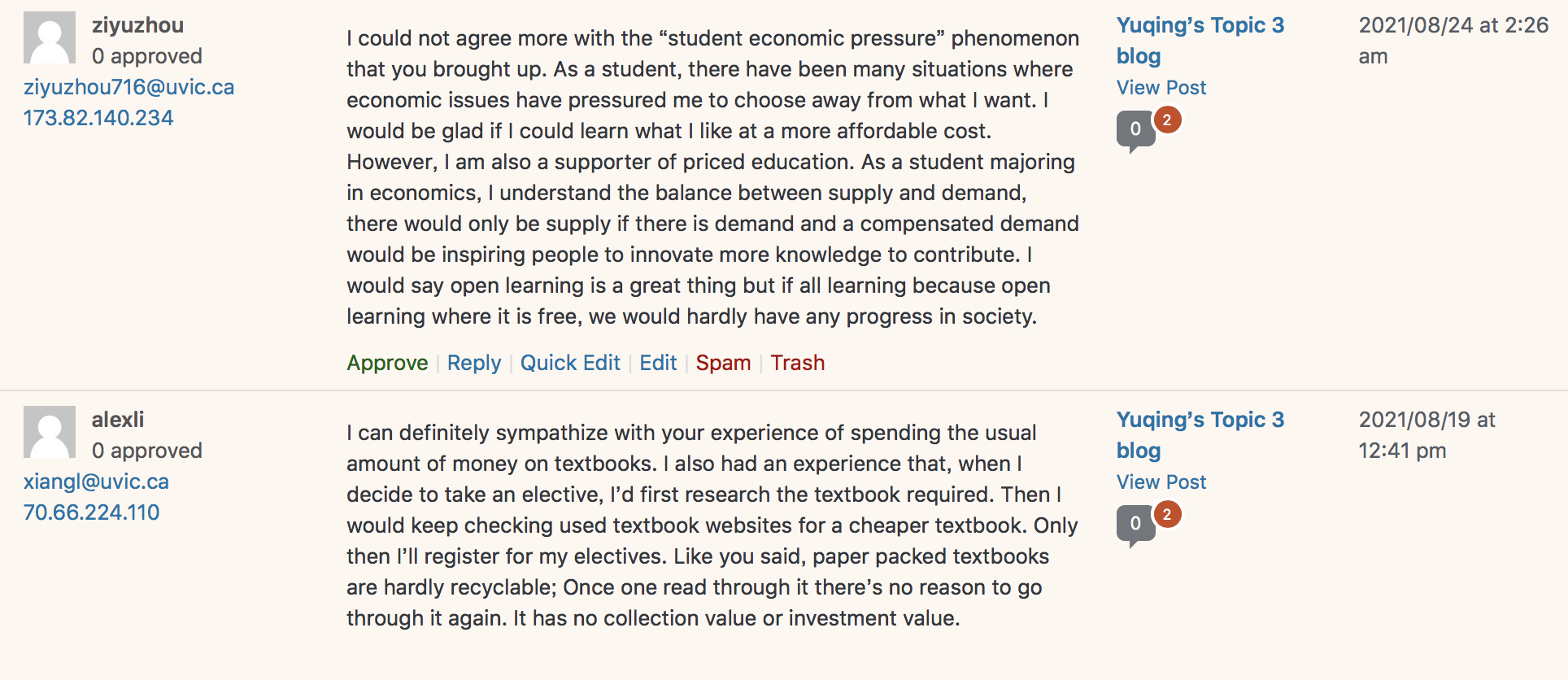
Comment I made on other’s post:
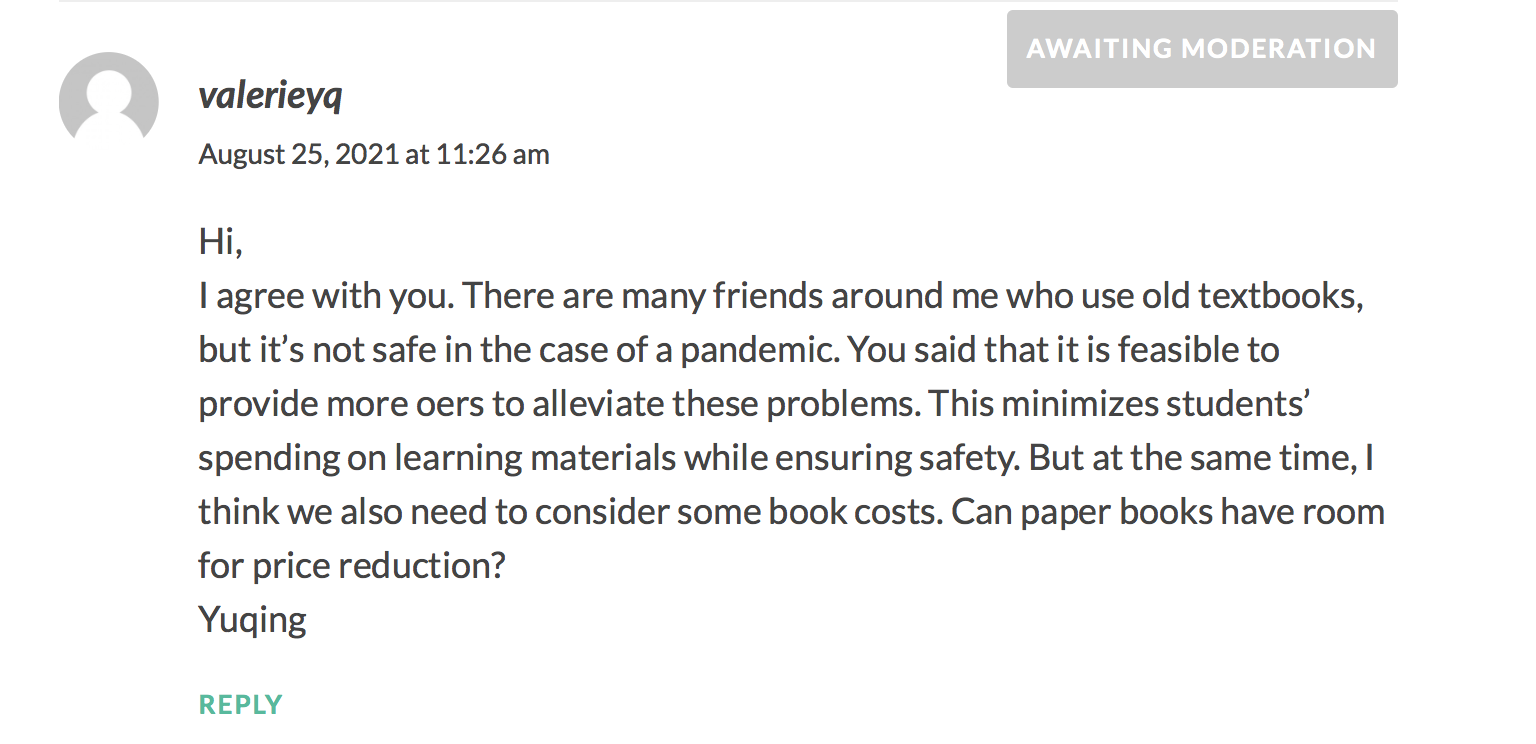
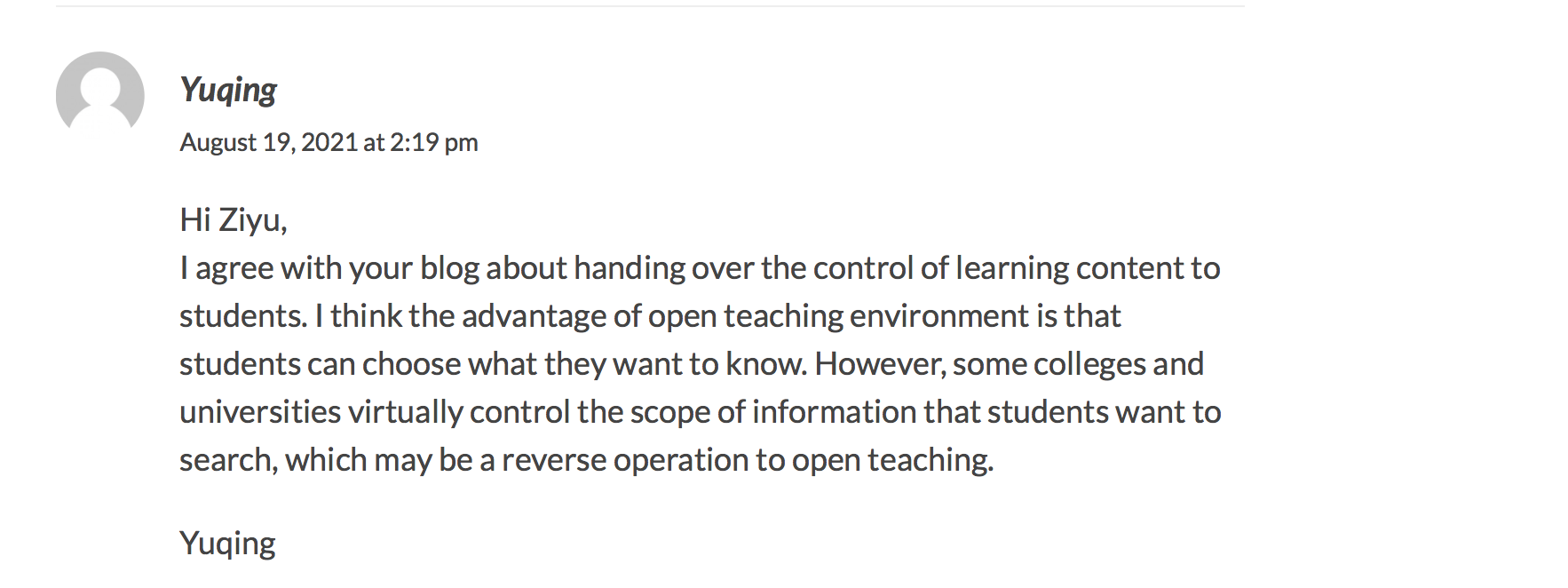
Blog 4:
The topic of this blog is sharing resources and practicing ‘open’. Before I wrote this blog, I read ‘Defining OER-enabled Pedagogy’. This article is mainly focus on the relationship between open education resources and teaching methods. Author provides some examples of OER-Enabled Pedagogy. Based on these examples, I think if I were a teacher, I would avoid Disposable assignments and promote open homework permissions. And I also showed the benefits of open work permissions in my blog. From doing this I learned Renewable assignments is not only a way to make assignments public, but also a way to share everyone’s ideas.In this way, students continue to learn new knowledge and get new inspiration. This learning contributed to my development of ‘Practice digital, networked, and open literacies in support of learning about distributed and open learning’. This learning matters to me because as a student, I have done a lot of disposable homework. I think it is a waste of my learning task. Through this study, I have better understood the importance of renewable assignments.
My Blog link:Yuqing’s Topic 4 blog
Comment I received:
Comments I made on others’ posts:

Part 2: “Showcase” Blog Post
Update version of the post:
Updated version of the post (Topic 2)
Original version of the post: Yuqing’s topic 2 post
The changes made along with reasons why the changes were made: I read Ryan’s comments. He put forward the possible shortcomings of MOOCS course, so I added a part to my post to explain the possible problems of MOOCS and how to solve them. I wrote two possible problems in MOOCS courses: students may give up halfway and there is a lack of communication between students.
Leave a Reply